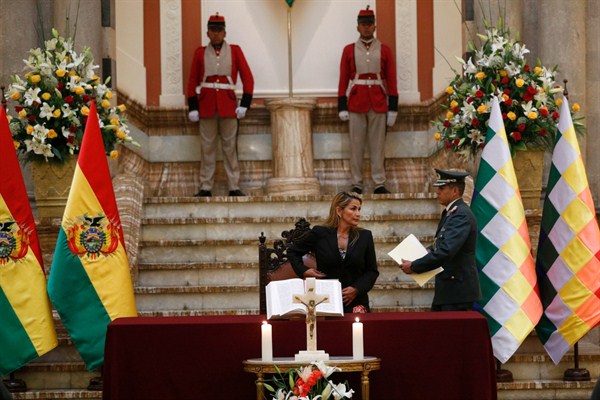For an interim president charged with overseeing Bolivia until new elections can be organized later this year, Jeanine Anez has acted like anything but the head of a caretaker government. Anez ascended to power unexpectedly last November following the ouster of then-President Evo Morales, who resigned at the “suggestion” of the country’s military amid a disputed election. Although she hails from a political party that managed to win a meager 4 percent of the popular vote in that October ballot, the right-wing former senator entered the presidential palace claiming a much bigger mandate. Flanked by two other outspoken opposition leaders, Anez lifted a large Bible aloft and declared that “God has permitted the Bible to return to the palace.”
In the two months since then, her government has sought to prosecute Morales and his former aides. Anez has also escalated her vitriolic rhetoric against Morales, calling him “a savage,” a historically loaded word with racist connotations in Bolivia, where more than 40 percent of the population is indigenous. Her government has also moved to realign Bolivia’s posture in Latin America, raising questions about whether a caretaker government has the authority to make decisions that could have lasting foreign policy impacts.
Anez’s rise to power had bloody beginnings. Thirty-five people died in violent demonstrations and clashes with state security forces after Morales’ contested electoral victory and subsequent ouster, making November the bloodiest month of unrest in Bolivia since the infamous “Black October” crackdown on public protests in 2003. According to evidence gathered by the anthropologist Carwil Bjork-James, who has closely studied social conflicts in the country since 2015, state security forces were responsible for most of the fatalities in the post-election turmoil.

